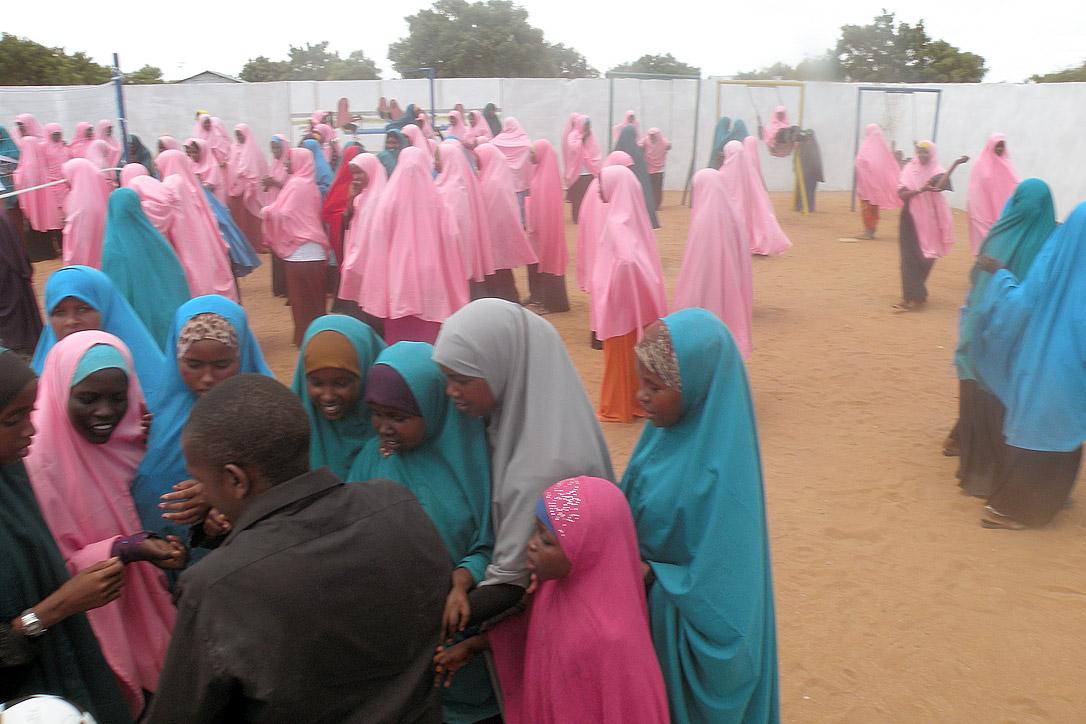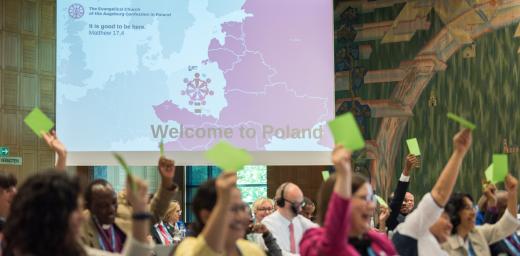Kenya’s decision to end refugee hosting will increase risks for thousands

Dadaab is the worldâs largest cluster of refugee camps, with a population of more than 350,000 people. At its Kambioos camp, LWF provides dedicated areas for girls that offer activities and protection. Photo: LWF
LWF joins call to uphold the rights of refugees
(LWI) – The Lutheran World Federation (LWF) is among non-governmental organizations (NGOs) urging the Kenyan government to reconsider its intention to both close refugee camps in the country and disband its Department for Refugee Affairs.
“Shutting down the refugee camps will mean increased protection risks for thousands of refugees and asylum seekers – [the] majority of who are women, children and unaccompanied minors,” the 11 NGOs said in a joint statement on 10 May. They called on Kenya to continue to uphold the protection and rights of refugees, many of who would be prone to human rights violations.
Kenya’s Interior Ministry in a statement on 6 May cited “immense security challenges” and the slow pace of Somali refugee repatriation as factors for the decision that “hosting of refugees has to come to an end.” It said Dadaab and Kakuma camps would be closed “within the shortest time possible.”
The NGOs argue that an abrupt closure of the two camps could trigger a humanitarian catastrophe for East Africa as other countries in the region are already shouldering huge refugee populations. They encouraged the government to continue with its sustainable approaches, such as increased policing in the camps and host communities to facilitate timely information sharing, mitigation and response to security threats.
Shutting down the refugee camps will mean increased... risks for thousands of refugees and asylum seekers – most of who are women, children and unaccompanied minors
Disbanding the Department for Refugee Affairs would create a critical coordination gap in terms of providing services to refugees including voluntary repatriation, the NGOs stated.
Despite ongoing processes to restore peace in Somalia and South Sudan, where most of the refugees originate, the situation in those countries remained “dire and fragile,” with displacement continuing.
Refugee laws and asylum regimes were under attack, especially in Europe, the NGOs stated. They urged Kenya to “not follow that path but instead continue to host refugees with more assistance from the international community.”
Advocating for refugees
LWF General Secretary Rev. Dr Martin Junge welcomed the NGOs’ statement and reiterated recognition for Kenya’s hospitality to people seeking refuge from conflict and environmental disasters over the course of several decades.
The LWF would keep advocating for the protection of refugees. “The burden of hosting refugees should be shared, and the international community should provide additional financial support towards refugee programs,” he said.
He expressed concern over the deteriorating commitment of the international community of States to uphold their duty to protect refugees, as enshrined in the Geneva Refugee Convention. “Signatories to this Convention shouldn’t act as if they had never done so, nor as if this Convention didn’t exist,” he added.
Kenya hosts nearly 600,000 refugees mainly in the camps at Dadaab in the northeast and Kakuma in the northwest, which were set up in the early 1990s. The figure includes over 400,000 Somalis, according to the United Nations High Commissioner for Refugees (UNHCR), mainly in Dadaab. Kakuma has around 185,000 refugees, mostly South Sudanese, Sudanese and Somalis.
The LWF assists some 2.3 million refugees around the world, in close collaboration with UNHCR. Its program in Kenya and Djibouti supports refugees at Dadaab, Kakuma and in Djibouti, while the Chad, Burundi, Democratic Republic of the Congo, Ethiopia, Mauritania, South Sudan and Uganda programs host thousands more fleeing recurring conflict in the region.
Slider image: REUTERS/Jonathan Ernst for LWF



